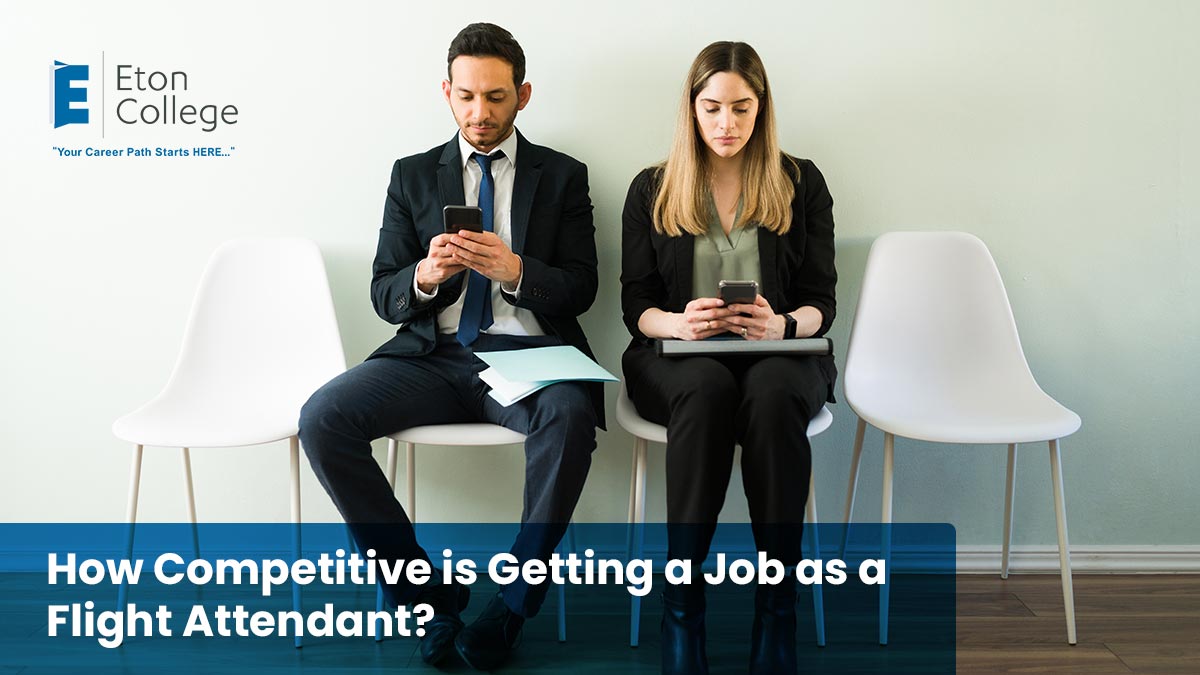- The flight attendant hiring process is competitive due to the high volume of applicants and limited job openings.
- The role’s perks, such as travel benefits, flexible schedules, and job stability, make it highly desirable, attracting many candidates.
- Airlines typically require a high school diploma or equivalent, though additional training and certifications are preferred.
- Having certifications like First Aid, CPR, and AED training can significantly improve your chances during the hiring process.
- Strong interpersonal skills, teamwork, adaptability, and the ability to handle high-pressure situations are crucial for flight attendants.
Pursuing a flight attendant job is an exciting career move, offering the chance to travel, meet new people, and work in a dynamic aviation environment. However, landing the role can be highly competitive, as airlines receive thousands of applications for only a limited number of openings. Understanding the factors that contribute to this competitiveness and how you can stand out will significantly increase your chances of success.
Why is Flight Attendant Hiring Competitive?
Several factors make flight attendant hiring especially competitive. First, the role is attractive due to its perks, such as travel opportunities, flexible schedules, and job stability. These benefits naturally draw a large number of applicants who are eager to enter the industry. Second, airlines tend to hire only a few times a year, which means when positions open, there’s a significant influx of candidates.
Additionally, many airlines require specific qualifications and certifications, such as First Aid, CPR, and AED training, which not all applicants possess. The combination of limited job openings and a highly competitive applicant pool makes securing a flight attendant job a challenge.
Qualifications and Skills Airlines Look For
While it’s true that the flight attendant hiring process is competitive, there are specific qualifications and skills that can help you stand out. Most airlines require candidates to have at least a high school diploma or equivalent, but many airlines prefer candidates who have completed specialized training or have customer service experience. Having certifications like First Aid, CPR, and AED (Automated External Defibrillator) training can also give you an edge.
In addition to educational qualifications, airlines look for candidates with strong interpersonal and communication skills. Flight attendants need to manage passenger safety, handle conflicts, and provide excellent customer service—all while working as part of a team. Demonstrating your ability to remain calm under pressure and adapt to different situations can make you a more attractive candidate.
How Can You Improve Your Chances of Getting Hired?
Due to the competitive nature of flight attendant hiring, taking proactive steps is crucial to improving your chances of landing the job. One effective way to stand out is by completing a Flight Attendant Preparation Program, which provides you with essential skills, certifications, and practical experience needed for the role.
These programs equip candidates with the qualifications that make them more attractive to employers, especially since they already possess industry-relevant training. Airlines often favor candidates with specialized training because it minimizes the need for extensive in-house training, giving you a significant advantage in the hiring process.
Networking is another valuable tool in your job search. Building relationships with industry professionals, attending aviation career fairs, and staying active on platforms like LinkedIn can open doors to opportunities.
Additionally, tailoring your resume to highlight relevant qualifications, skills, and certifications specific to the flight attendant role can help you make a strong impression during the application process.
The Role of Timing in Flight Attendant Hiring
Another critical factor in landing a flight attendant job is timing. Since airlines often have specific hiring periods throughout the year, staying informed about when these opportunities arise is essential. Some airlines may only open their hiring process for a few weeks, so being prepared with your resume, certifications, and cover letter in advance can give you a significant advantage.
Additionally, because the demand for flight attendants can fluctuate based on the airline’s growth or seasonal needs, the number of available positions may vary. Staying flexible and willing to apply to multiple airlines can increase your chances of securing a role during these limited hiring windows.
Conclusion: Standing Out in a Competitive Job Market
While flight attendant hiring is highly competitive, there are several steps you can take to improve your chances of success. Gaining the right qualifications, completing a specialized training program, and networking with industry professionals can help you stand out from the crowd. By preparing yourself with the necessary skills and staying proactive, you can turn your dream of becoming a flight attendant into a reality.
For those looking to gain an edge in this competitive field, Eton College offers a Flight Attendant Preparation Program that provides comprehensive training and certification. With career support and hands-on experience, Eton College can help you navigate the challenges of the hiring process and land a job in this exciting industry.
FAQs
- How competitive is flight attendant hiring?
The flight attendant hiring process is very competitive due to the limited number of positions and the high volume of applicants for each opening. - What qualifications do I need to become a flight attendant?
At minimum, most airlines require a high school diploma or equivalent, but completing a Flight Attendant Preparation Program and obtaining certifications like First Aid and CPR can improve your chances. - How can I make my application stand out during the flight attendant hiring process?
Tailoring your resume, gaining relevant certifications, and networking with industry professionals can help make your application stand out. - When do airlines typically hire flight attendants?
Airlines tend to have specific hiring periods, often a few times a year, depending on demand and seasonal needs. Staying informed about these periods can help you apply at the right time. - Does Eton College offer support for flight attendant hiring?
Yes, Eton College provides career support, including resume building, interview preparation, and industry connections to help graduates navigate the hiring process.




